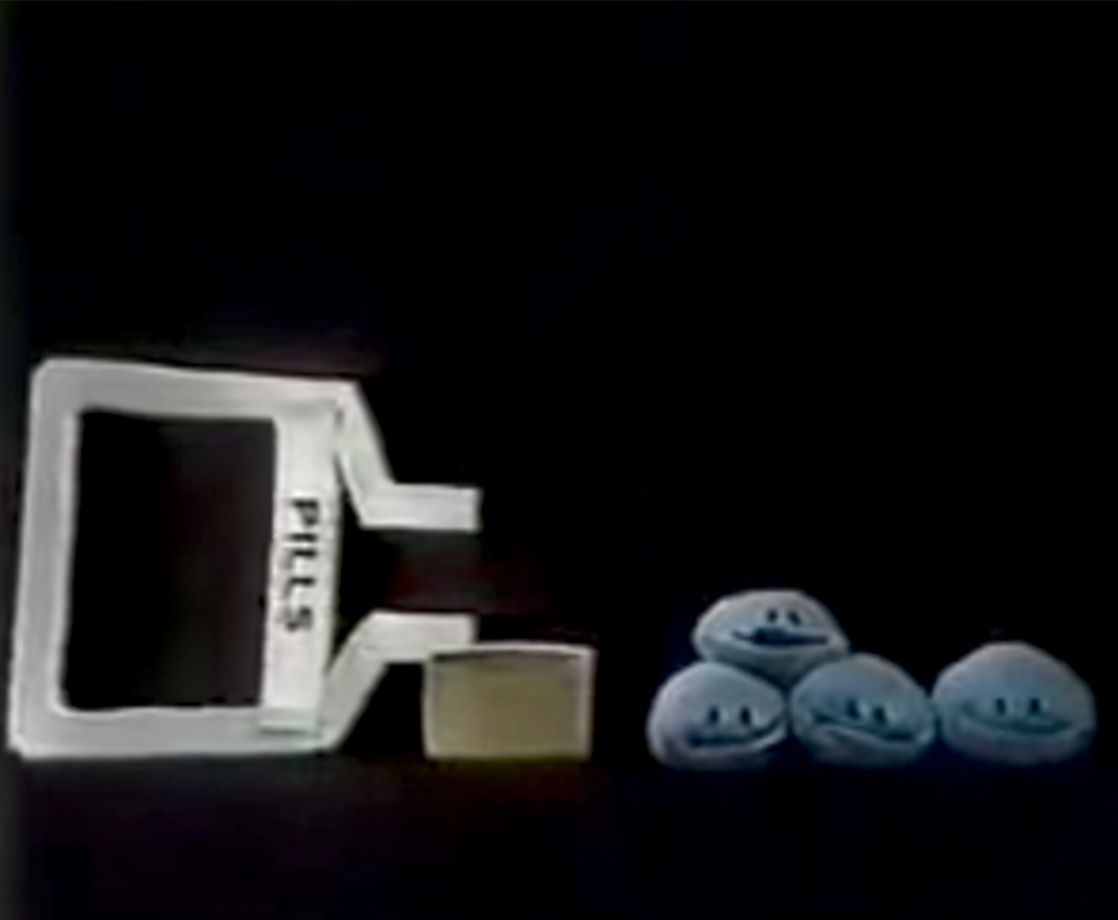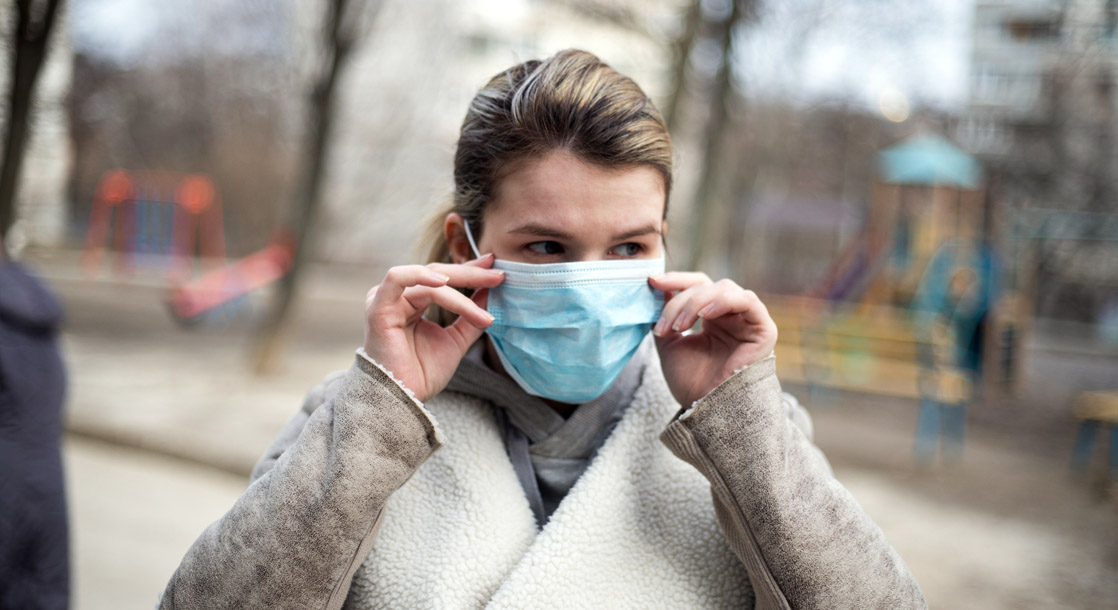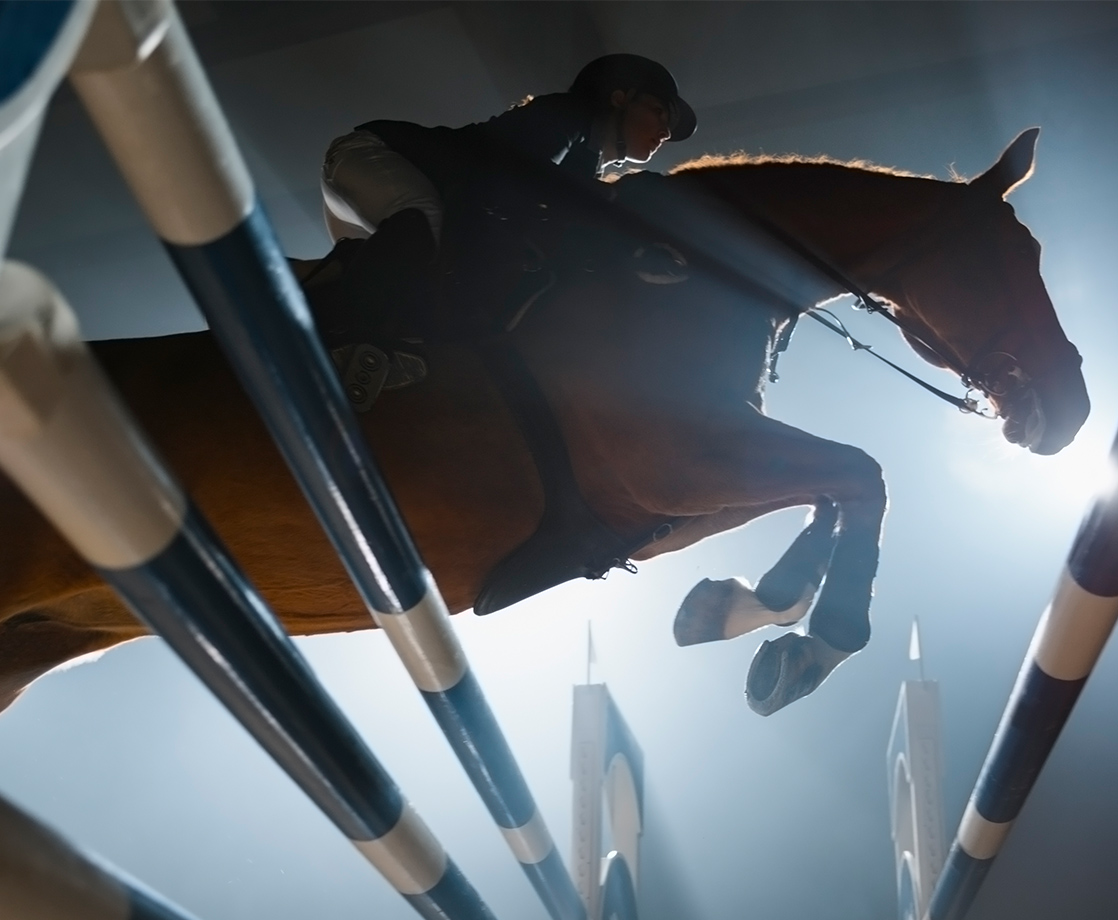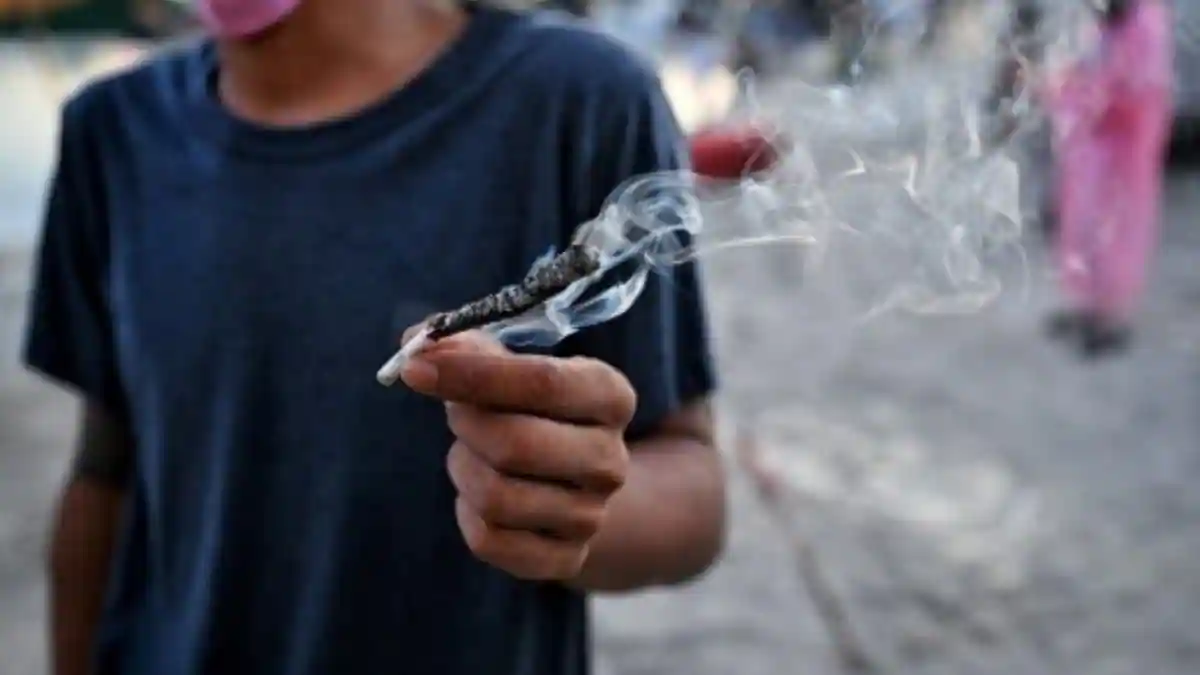Culturally speaking, the highs of getting high are often best paired with music. Getting lifted off a hit can cause a sonic chain reaction that will have you appreciating long-standing classics in brand new ways or somehow bopping to a Fergie track and calling it a masterpiece with a straight-face. Your taste is not always at its tip-top when high, but your focus is precise and zeroed in. It's no wonder that some of America's most beloved musicians are forever associated with weed, MERRY JANE proprietor Snoop Dogg included. Oftentimes, these artists will even encourage the connection, as Wiz Khalifa's collaboration with Raw Papers (and many other celebrities' cannabis brand partnerships) suggests.
Similarly, anti-weed propaganda has often experimented with music as a pairing device, though with radically different intentions. Some of the most heinous examples of the anti-drug PSA feature an attempt at using a catchy tune, though the effects can harm the message more than they help it. In the case of the three examples below, the results vary wildly, with one song even turning into a bit of a celebration of drugs. Like celebrities-turned-musicians or 90% of La La Land, leaning into music as a creative outlet can often backfire spectacularly. Below are some notable music mishaps in the anti-drug cannon.
We're Not Candy! (1985)
"It is / Serious / We could make / You delirious / Have a healthy / Fear of us / Too much of us / Is dangerous"
Musical anti-drug PSAs always run the risk of forfeiting the lesson and instead resemble a nightmare trip. "We're Not Candy" features three stacked, talking blue pills who begin to worry whether someone will accidentally think they're candy. The concern really shouldn't be that they too-closely resemble a pile of M&Ms or Smarties, but rather that the scenario is the kind of "bad trip" a drugged-out hacky sack player might have while absentmindedly staring at the corner of his room.
The four blue pills are handily piled next to a an empty paper pill box amidst a glossy, all-black background that looks like like a leftover prop from the days of disco. The commercial was a regional spot that aired around Long Island, which in the mid-1980s was in the throes of a crack epidemic that was debilitating entire neighborhoods in its sister city of New York as well. At the tail end of the spot, we get a slide with an accompanying phone number for Long Island Regional Poison Control, a moment which reminded me of the fact that all landlines featured three shortcut buttons, one of which was bizarrely for poison control. As a kid, I would stare at that button endlessly, unable to place its meaning for years. This spot feels like Sesame Street for the crack era; the pills singing in the dark, appearing as if they're floating in space, looking every bit the kind of nightmare the PSA was trying to prevent.
Be An Original (1987)
"Getting into drugs and / Being high / Is a stupid thing to do. / Be an original! / Take a stand / You're free to say no!"
Having been the first to utter the phrase "make America great again," it's no surprise that Reagan-era rhetoric can be something of an earworm. Still, it's sometimes shocking to see how fully the "Just Say No" slogan managed to weasel its way into the pop lexicon. One year after "Be An Original" debuted on TV in 1987, Nike would put its own unintentional spin on it when the company debuted the first promos featuring its now-legendary slogan, "Just Do It." Semantics aside, the phrase tussles with "Just Say No" as perhaps one of the most recognizable American ad slogans of the century.
Even with such historical context, "Be An Original" manages to be a batshit piece of propaganda. The minute-long video takes place inside a weird cyber-mall in some distant future, "Be An Original" looks like if Marty McFly took ecstasy at a gay nightclub. At one point, a dealer lifts a trash can lid and reveals a number of different drugs tapes underneath it — except not one is recognizable. I'm pretty sure the heroin needles are actually fast food straws. Everybody is jumping around on skateboards as some weird Big Brother feed tries to convince them that they don't have to try and be like everybody else. I am absolutely unclear on why a futuristic surveillance state is trying to sell me on originality. Every square inch of this weird futuristic back ally feels more equipped to police a thought crime than teach me a lesson on individuality. The scene looks a bit like if Joel Schumacher directed Michael Jackson's "Bad" video, but it's definitely a great reminder that MTV fundamentally altered an entire generation's worth of storytelling. Even drug PSAs wanted to be music videos.
Straight Up! (1988)
"Yo little brother / What's up with these drugs? / You wanna make a lot of money / And be a thug? / You want these fancy cars / And to flaunt ya money? / But then you go to jail / Like all these other dummies"
Like many other commercial PSAs of the era, Straight Up! owes a debt of gratitude to MTV, which served as a muse for an entire era of anti-drug propaganda. Some films would mimic the network's hyperactive editing techniques, while others would focus exclusively on teenagers, with no adults in sight. Here, old school hip-hop is used as a way to not only translate the message, but also to speak to a more specific audience.
Most anti-drug PSAs attempt to navigate the peer-to-peer social sphere. Here, the Straight Up! spot wants to acknowledge that drugs are good business. The plea of the song is less to those who are tantalized by the prospect of smoking a joint, and more for those already in the throes of dealing. In a way, this makes the direct address of the commercial weigh heavy, even while our on-screen rappers look like they could front a Vegas New-Edition tribute act. Nevertheless, this spot, produced by the Partnership for a Drug Free America, attempts to take the era's fascination with music as a conduit for social change and actually direct it at something more specific than the ambiguous teen. If MTV was about turning kids into consumers, Straight Up! is using the same language, but talking to the salesmen.
Drugs Drugs Drugs (1992)
"Drink a little water / Take your doctor's pills / Drugs can make you better / When you're feeling ill"
In probably one of the most brutally ill-advised jingles since "Don't Put It In Your Mouth," "Drugs Drugs Drugs" is an anti-drug PSA that manages to spend the first half of its minute-long running time literally celebrating the fact that drugs exist. Same babe! The song eventually transitions into a Does-This-Count-As-EDM chorus: "Drugs drugs drugs / Which are good? Which are bad?" The chorus sort of sounds like a think tank attempting something like a declarative statement.
At one point, the song begins to dip into the catalog of drugs that provide more harm than good — only for the music to swell so loud that you're left having to read lips if you want to make out what's being said. All I know is that a knockoff Dakota Fanning jumps into a police officer's arms, which is almost always my high fantasy.
Follow Rod on Twitter











